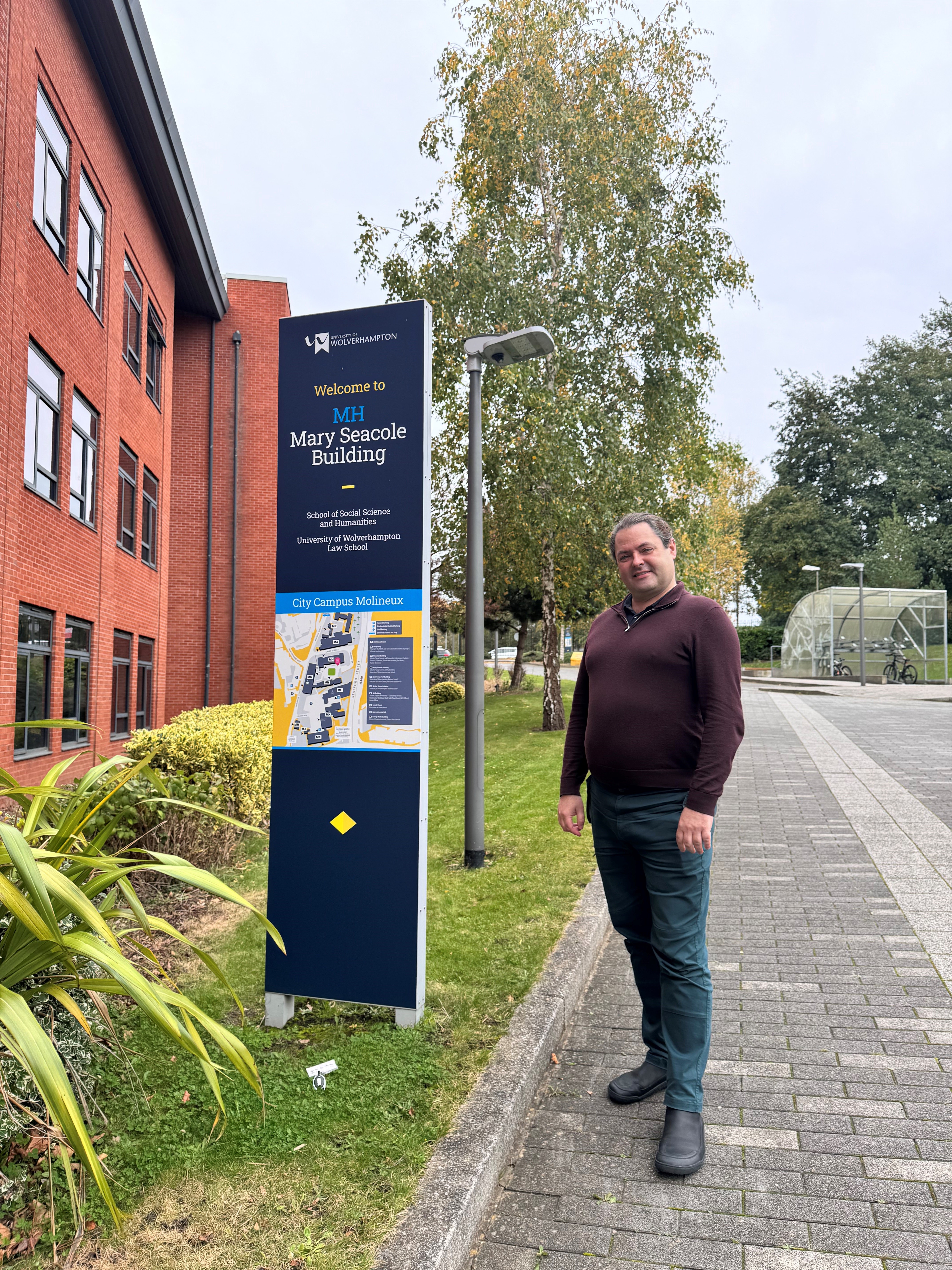.jpg)
Research funding examines the impact of deaf mediator, interpreter and translation professionals

The University of Wolverhampton has secured £600k funding as part of a £1.8m multi-agency partnership project to examine the impact of deaf mediator, interpreter and translation professionals in the UK, France and Germany.
The Economic Social Research Council (ESRC) funding has been awarded to Dr Christopher Stone from the University’s School of Social Science and Humanities for a three-year research project which will be carried out in collaboration with Professor Jérémie Segouat from the University of Toulouse and Jean Jaurès and Professor Christian Rathmann Humboldt from the Universität zu Berlin.
Dr Stone said: “I’m delighted to have been awarded this funding as part of a multi-agency partnership to examine the impact of the different journeys and unique histories covering the impact of deaf mediator, interpreter, and translation professionals (DMIT) within the UK, France and Germany.
“The research project helps to further understand how the United Nations sustainable development goals covering education and reducing inequalities, and the United Nations Convention on the Rights of Persons with Disabilities (CRPD) including art 9 accessibility, art 21 freedom of expressions and opinion, and access to the community can be achieved.”
The research project will focus on three areas:
- The translation of information by government, municipality, and non-government organisations from written to signed languages found on websites, new media, and other avenues to provide access to wider society
- Interpreting on television broadcasts and via webcast to signed languages
- Interpreting within conference settings.
The research will describe the scope of DMIT work within each area and analyse the specific language features of the DMIT product, including the pausing and pacing, prosodic information structure, event structure, and the use of depiction. This should help us to understand what DMIT do to help deaf people and deaf communities better understand translated content.
Simulated DMIT Sign Language Translator and Interpreter (SLTI) will be undertaken so that a more detailed analysis of the SLTI process can be explored and described including some comparison with non-deaf interpreters. This will allow for the systematic analysis of the SLTI of the same source language and for a database to be created.
The eighth round of Open Research Area (ORA) for the Social Sciences is based on an agreement among the Agence Nationale de la Recherche (ANR), France; the DFG, Germany; the Economic and Social Research Council (ESRC) of UK Research and Innovation, United Kingdom; and the Social Sciences and Humanities Research Council of Canada (SSHRC) who is the coordinating agency.
Anyone looking for courses in the School of Social Science and Humanities should check out the website or attend one of our forthcoming Open Days.
Picture caption shows Dr Stone.
ENDS
For more information please contact the Corporate Communications Team.


/prod01/wlvacuk/media/departments/digital-content-and-communications/images-2024/Diane-Spencer-(Teaser-image).jpg)
/prod01/wlvacuk/media/departments/digital-content-and-communications/images-18-19/220325-Engineers_teach_thumbail.jpg)
/prod01/wlvacuk/media/departments/digital-content-and-communications/images-2024/241024-Dr-Christopher-Stone-Resized.jpg)
/prod01/wlvacuk/media/departments/digital-content-and-communications/images-2024/UoW-City-Campus-(Teaser-Image).jpg)
/prod01/wlvacuk/media/departments/digital-content-and-communications/images-2024/241014-Cyber4ME-Project-Resized.jpg)
/prod01/wlvacuk/media/departments/digital-content-and-communications/images-2024/240315-Research-Resized.jpg)
/prod01/wlvacuk/media/departments/digital-content-and-communications/images-2024/Santander-X-Awards-(teaser-image).jpg)
.jpg)
.jpg)